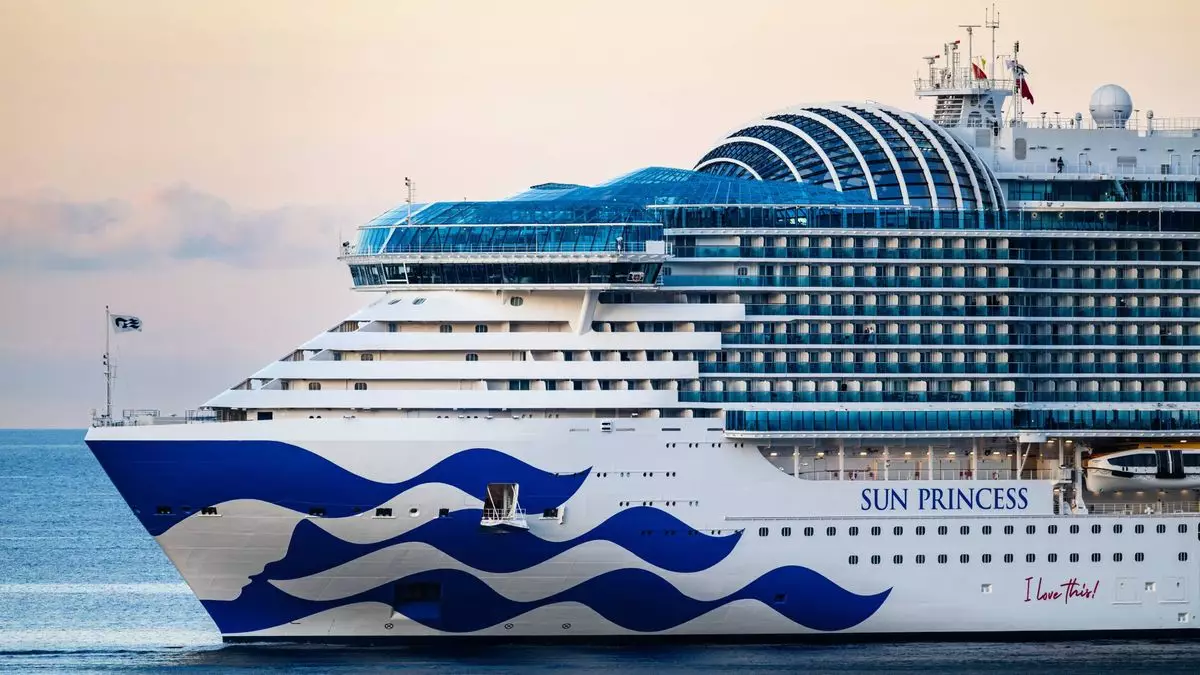The cruise industry, once on the ropes due to the global pandemic, is now riding an impressive wave of recovery, with Carnival Corporation leading the charge. Under the guidance of its CEO, Josh Weinstein, the company’s return to profitability is not merely anecdotal but substantiated by robust financial metrics that reflect a renaissance in the cruising experience. With a blend of creative marketing strategies and an innovative approach to customer engagement, Carnival is reshaping its narrative and redefining industry standards.
During a series of earnings calls in 2023, Weinstein painted a vivid picture of a cruise line breaking records across several benchmarks. He noted a staggering 30% increase in new cruisers during the first quarter of the year, a clear indicator of the soaring demand for cruise vacations. By the second quarter, Carnival had continued to build on this momentum, achieving record levels in revenue, operating income, and booking figures. Going into the third quarter, the trend persisted, with Carnival not only surpassing revenue goals but also reporting unprecedented customer deposits.
This upsurge does not seem to be a fleeting moment; Carnival is experiencing solid bookings well into 2025, with nearly half of that year’s capacity already secured. The demand for cruises in 2026 appears equally promising, as booking volumes for far-off sailings have reached new heights. This sustained growth reflects a broader revival in the cruise sector, correlated with strong consumer interest and market positivity.
Carnival’s robust performance can be attributed, in large part, to its aggressive marketing investments. Recognizing the crucial role that visibility plays in consumer decision-making, the company amplified its advertising spending starting in late 2022. This strategy aimed not only to attract seasoned travelers but also to convert a new demographic of cruisers during the pivotal 2023 Wave season. Importantly, Weinstein highlighted the significant return on investment the company experiences from these marketing endeavors, emphasizing that the financial figures speak to their efficacy.
The strategic push to market cruising as a more economical alternative to traditional vacations has resonated favorably with consumers. In a travel sector where many businesses have returned to pre-pandemic norms, Carnival’s novel approach stands out. The company’s digital presence has surged, with website visits increasing markedly and substantial growth in both paid and organic internet search traffic. These metrics illustrate the depth of consumer engagement and interest being cultivated through targeted advertising campaigns.
Integral to Carnival’s strategy has been collaboration with travel advisors, whose influence in amplifying the company’s marketing messages is irrefutable. Weinstein acknowledged this partnership during earnings calls, asserting that these professionals have been crucial in transforming interest into bookings. Their expertise allows Carnival to tap into new customer segments, enhancing the overall experience from marketing to realization.
Moreover, CEO Weinstein consistently emphasizes that Carnival’s business model revolves around delivering high-quality experiences onboard. This focus on customer satisfaction acts as a foundation for the company’s recruitment of new cruisers. By ensuring that the voyage itself is memorable, Carnival fosters repeat business and encourages word-of-mouth referrals that can expand its customer base in an organic manner.
As Carnival Corporation sails smoothly into the years ahead, market analysts remain optimistic about the broader outlook for the cruise industry. Ivan Feinseth, a prominent financial analyst, reflects the prevailing sentiment by asserting that the robust demand for cruises stems from consumers who are eager to spend. With a growing perception that cruises offer unmatched value and variety, consumers are increasingly opting for these immersive travel experiences over traditional vacation formats.
The favorable socio-economic conditions underpinning this consumer behavior signify a potential for further growth across the industry. As disposable incomes rise and consumers seek both adventure and value, Carnival finds itself in a strategically advantageous position. The combination of strong marketing, exceptional customer service, and robust offerings has cemented Carnival’s reputation as a leader in the cruise world—a reputation that promises to thrive as the company continues to innovate and adapt.
Carnival Corporation’s impressive rebound is a testament to effective leadership, innovative marketing, and a keen understanding of consumer behavior. By overcoming the challenges posed by the pandemic and positioning itself favorably for future growth, Carnival is not just surviving; it’s thriving. As the cruise industry moves forward, Carnival’s proactive strategies will likely serve as a blueprint for success in a constantly shifting travel landscape. With customer satisfaction at its core, Carnival is charting new waters and redefining the cruise experience for generations to come.


Leave a Reply